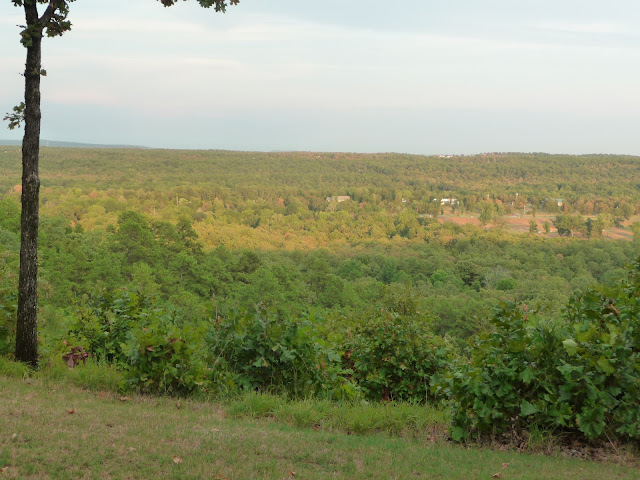On a recent Sunday afternoon, from
my vantage on Sue's sofa in her joyously festooned den, I reveled in the
comforting rise and fall of familiar women's voices. I admired golfing Santas
frozen in mid-swing on her mantel. I squinted as I nursed my punch, recalling
how I shed my glasses as a nearsighted girl to enhance the holiday haze of our
tree as the console stereo in our rarely-used living room played "Many
Moods of Christmas," some 40 years ago.
Sue's living room does not fall
into the "rarely used" category. Today, it was filled with
grandmothers, mothers and daughters, some balancing babies in their laps,
assembled ritually in Sunday clothes to give Mandy a proper sendoff on the
grand adventure of motherhood. The centerpiece was graced with poinsettias,
snowmen and baby shoes. Guests arrived with all manner of lovingly-wrapped
offerings to celebrate the new child and adorn his surroundings. Christmas and
babies: my favorite things in one afternoon. Lovely. What a welcome for this
boy!
I considered the things Mandy will
soon know. I was happy for her to join the throng of women since Eve who
understand what it is like to joyfully participate in the act of creation and
to love someone so completely -- then to carry inside the bittersweet
understanding that she cannot protect her child perfectly. I thought how this
child will teach Mandy selflessness, joy, longsuffering, humility, sacrifice,
and love. I considered how her world will revolve around him, and I
acknowledged, just for a moment, that he will have the power to break her heart
in ways she could never foresee.
Driving home, I pushed a CD player
button and listened to a selection from my current holiday collection. No
"Many Moods of Christmas" this time, but the random choice suited my
mood and the day. It was Amy Grant, singing a welcome for another boy:
Welcome to Our World by Chris Rice
Tears are falling, hearts are
breaking
How we need to hear from God.
You've been promised; we've been
waiting --
Welcome, holy child.
Hope that you don't mind our
manger;
How I wish we would have known!
But, long-awaited holy stranger,
Make yourself at home.
Bring your peace into our violence;
Bid our hungry souls be filled.
Word, now breaking Heaven's silence
Welcome to our world.
Fragile fingers sent to heal us,
Tender brow prepared for thorns,
Tiny heart whose blood will save us
Unto us is born.
So, wrap our injured flesh around
you;
Breathe our air, and walk our sod.
Rob our sin, and make us holy
Perfect son of God.
Welcome to our world.
My husband Dan is fond of saying
that parents will always love their children more than children can possibly
love them back, because a child can't comprehend the secret ingredient in love
-- sacrifice: the all-encompassing anticipation, the planning, the prayers said
before there is a hint of swelling in Mom's belly, the anxiety, the constant
preoccupation with ordering the world to best accommodate the comfort, safety,
and best interests of the child. Undoubtedly, God refers to Himself as our
Father rather than merely our Creator because it’s the closest way for our
earthbound brains to wrap around His sacrifice and grief. He loved us even
before creation, and He watched, brokenhearted, as we chose paths that took us
away from Him.
As Creator, Jesus loved each of us
completely. As Father, His heart was broken to watch us lose ourselves in
Satan's lies. As Redeemer, He was willing to be human and hurting -- the
eternal squeezed into the finite, God with a dirty diaper or an empty tummy,
the omnipotent one submissive even with the cross before Him -- to draw us near
to Him again.
So tonight, with my own family
asleep and our holiday lights silently glowing, I rejoice with Mandy at the
coming of her precious son Jacob, and I quietly celebrate that other child
whose birth the world remembers during this season: the One who taught us
selflessness, joy, longsuffering, humility, sacrifice, and love. I recall how
my sin breaks His heart, and I resolve to keep the lessons of His life and
sacrifice ever present with me. Welcome, Holy Child.
By way of disclosure, this essay
was originally published in Christian Woman magazine several years back, the
year the intrepid Jake Tatom was born.











